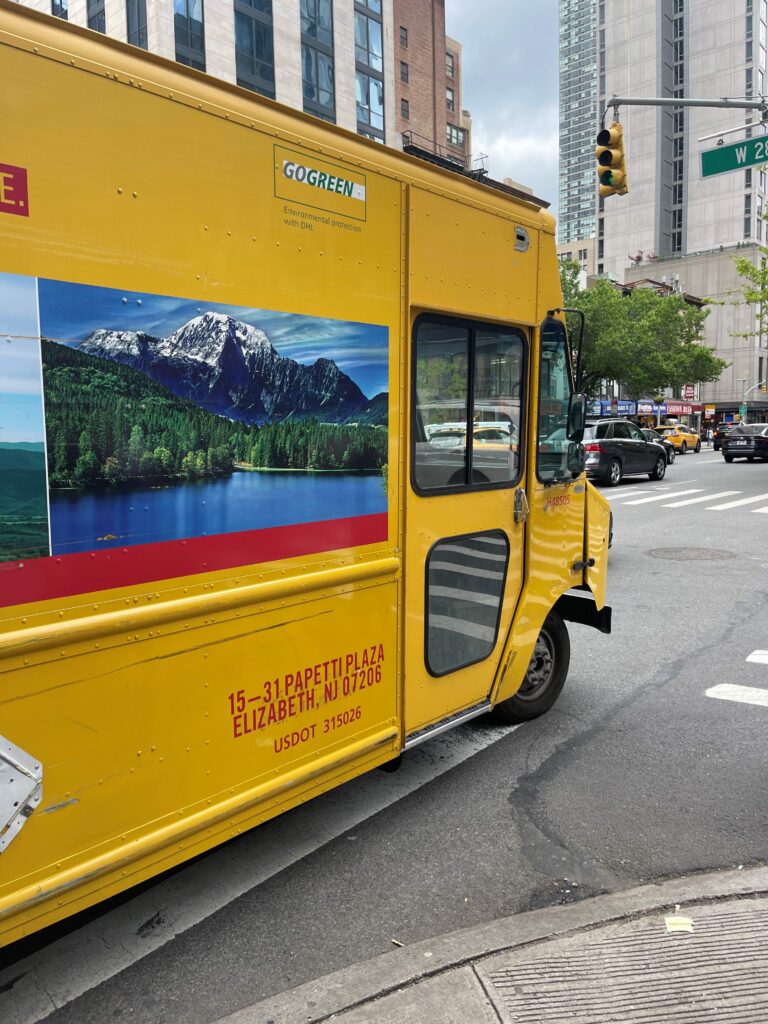
The Urban Freight Lab has been awarded a grant from the Health Effects Institute (HEI) to study how ecommerce-driven freight and warehousing operations impact air quality and public health in historically marginalized communities. The project, titled Managing the Traffic-Related Air Pollution (TRAP) Effects of Urban Warehousing Near Historically Marginalized Communities: A Scenario Analysis of Technology and Land Use Based Strategies, represents a novel application of modeling in ecommerce-related research. The study will focus on case cities Seattle and New York City, both leaders in balancing urban freight growth with community health and equity.
As ecommerce demand surges, warehousing and distribution centers (W&Ds) are increasingly located closer to urban consumers to support fast home delivery. This shift raises concerns about freight traffic and air pollution exposure for nearby residents, workers, and students. At the same time, major delivery companies like Amazon and UPS are making significant efforts to electrify commercial fleets and pursue Net Zero emissions. Evaluating the health impacts of these evolving freight is critical to ensuring that benefits are distributed equitably across communities.
“While ecommerce has improved access to goods in cities, it has also concentrated some freight emissions in industrial areas,” said Travis Fried, a doctoral student working on the project. “This research will provide insights into how different urban freight and land-use strategies can improve community health outcomes and environmental justice, helping cities better protect those most affected by freight activity.”
This project is part of HEI’s research program on Assessing Changes in Exposures and Health Outcomes in Historically Marginalized and Environmentally Overburdened Communities, which evaluates the impact of air quality actions on ambient and indoor air quality, exposure levels, health outcomes in historically marginalized and environmentally overburdened urban and rural communities.
Using an innovative model-based approach, UFL researchers will estimate traffic-related air pollution exposure across different population groups and simulate the effects of various state and local policy approaches — such as adopting low- and zero-emission commercial vehicles, zoning revisions, and relocating W&D sites — to identify the most effective strategies for reducing pollution disparities. The research team will integrate local traffic, emissions, and demographic data to build city-specific models.
The research team is comprised of:
- Anne Goodchild (Professor, Civil and Environmental Engineering; Founder, Urban Freight Lab) – Principal Investigator (PI), strategic leadership
- Giacomo Dalla Chiara (Research Associate, Urban Freight Lab) – statistical leadership
- Travis Fried (Ph.D. Student, Civil and Environmental Engineering; Research Assistant, Urban Freight Lab) – methodology and report production
- Julian Marshall (Boeing International Professor, Civil and Environmental Engineering) – Co-PI, pollutant exposure and health impact methodologies and interpretations
- Lianne Sheppard (Rohm & Haas Endowed Professor in Public Health Sciences, Environmental and Occupational Health Sciences; Professor, Biostatistics) – scientific advisor for data interpretation and review of written materials
A multi-stakeholder steering committee – including Consumer Reports, Metropolitan Area Planning Council (Greater Boston), New York City Department of Transportation, NYC Health, Seattle Office of Sustainability and Environment, Terreno Realty Corporation, and WE ACT for Environmental Justice – will guide the project’s design and implementation.
The Urban Freight Lab will share findings through academic journals and a comprehensive policy report, offering actionable data-driven recommendations to advance freight and land-use policies that prioritize both health and equity.